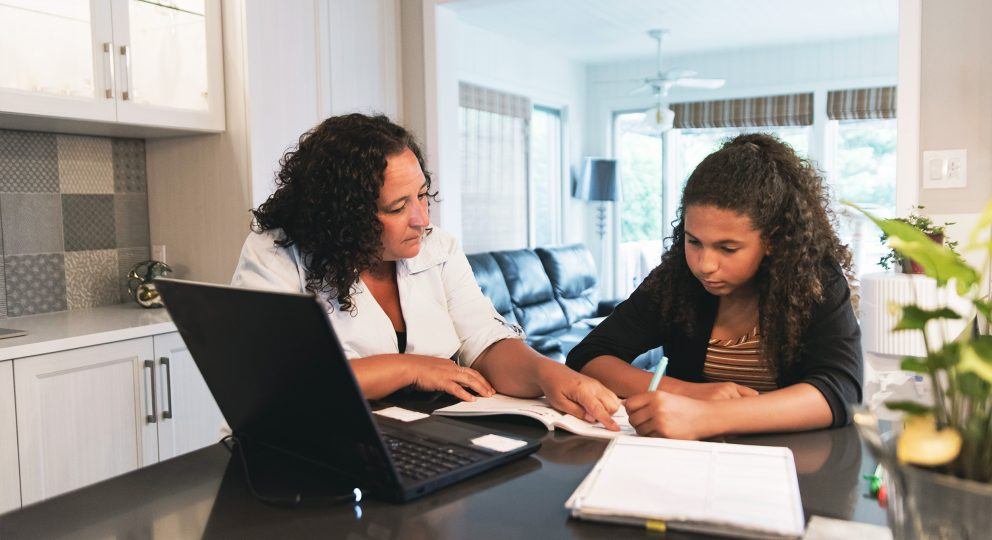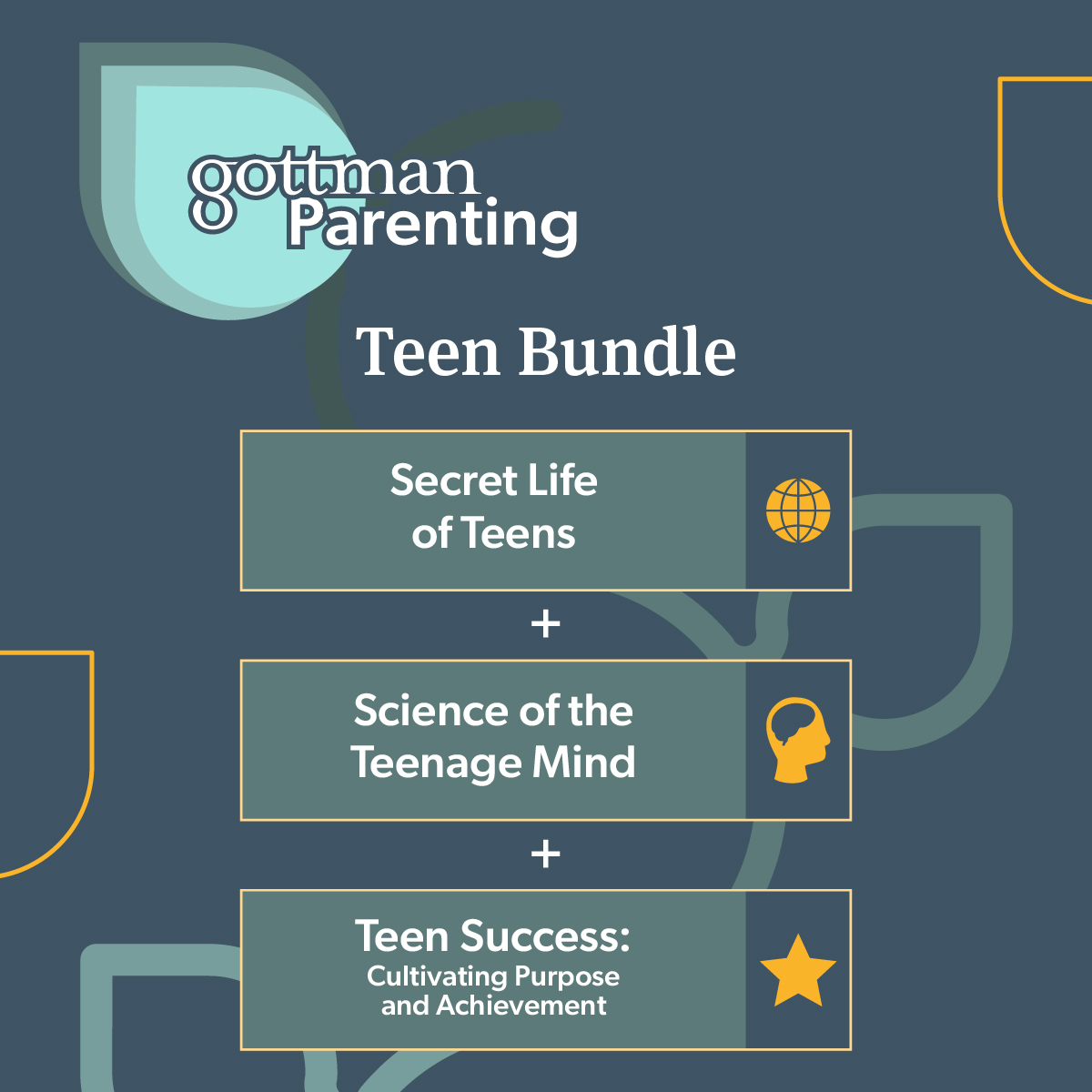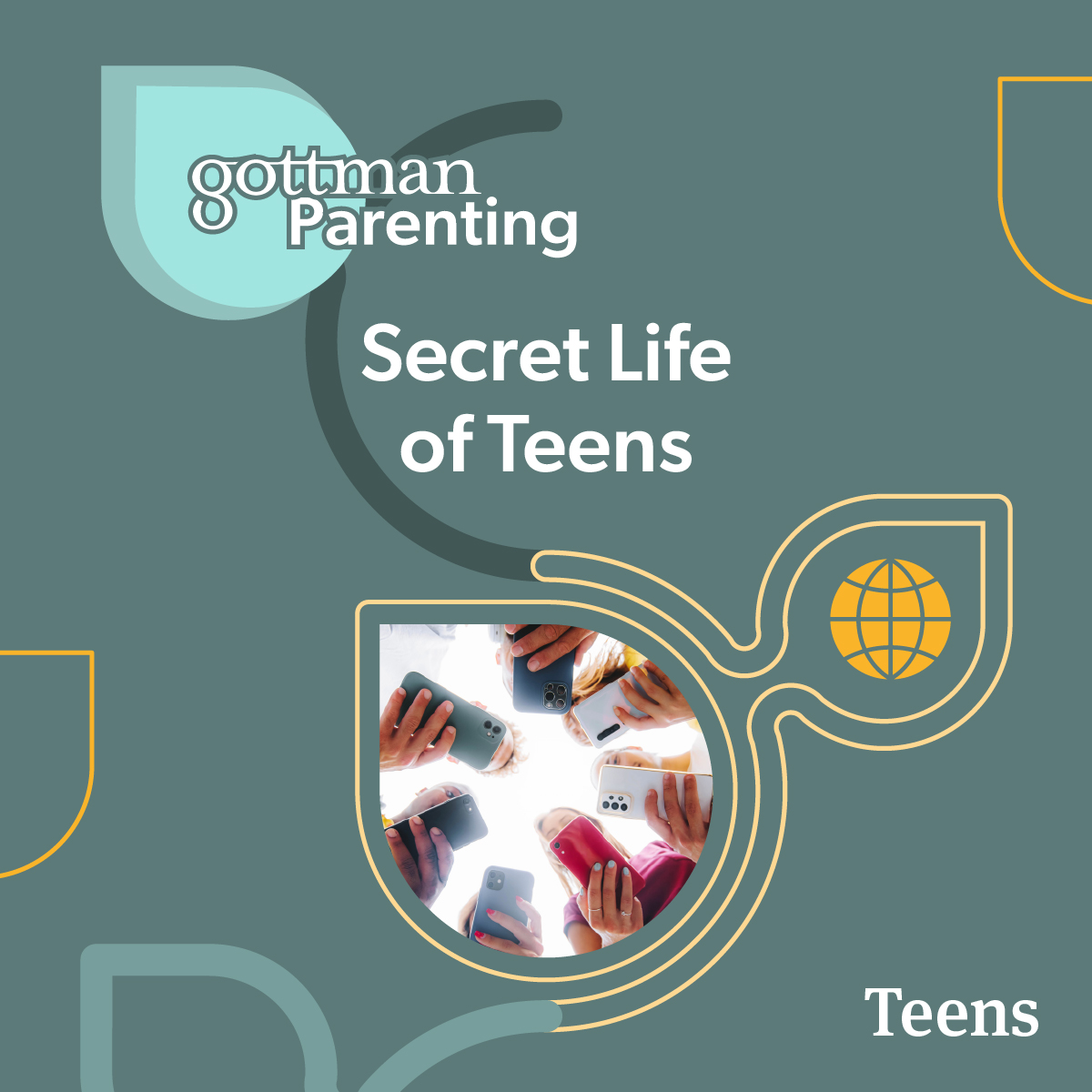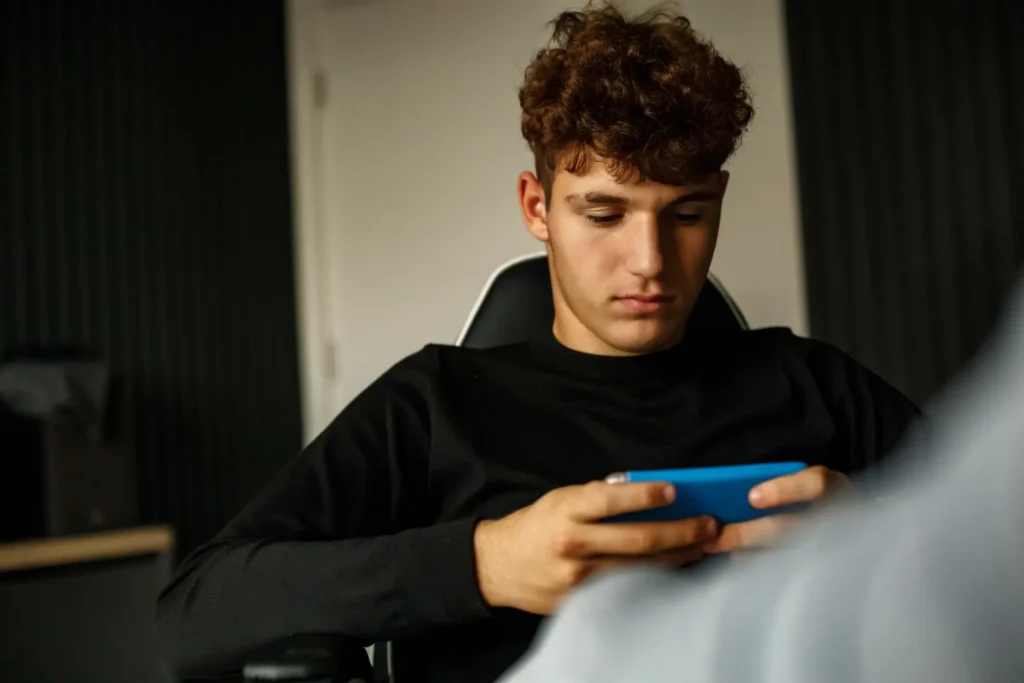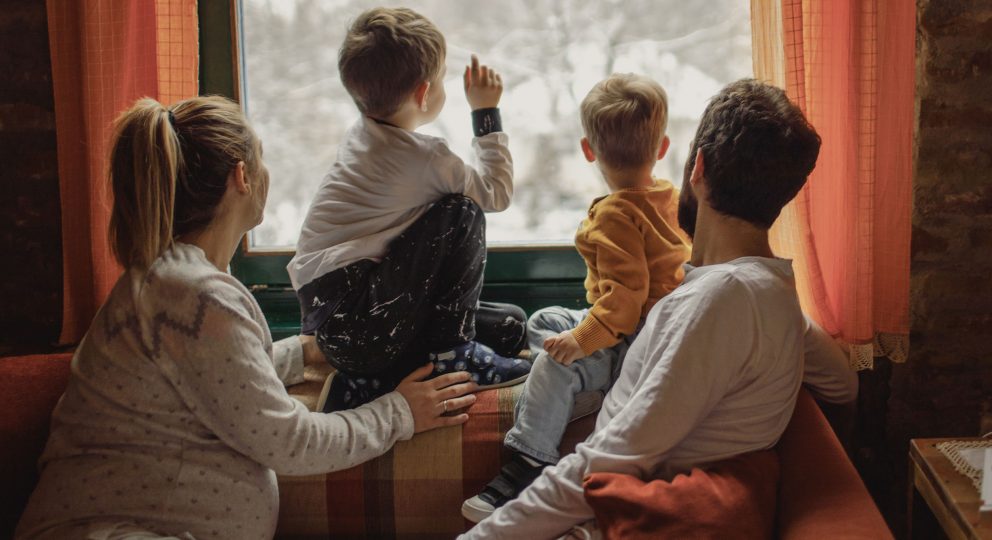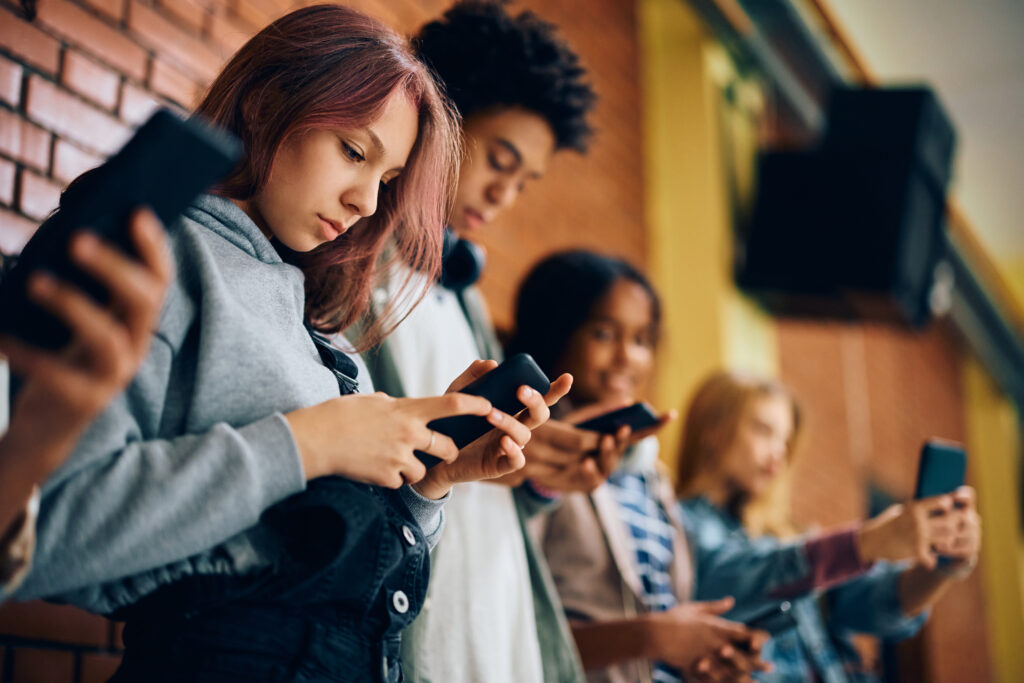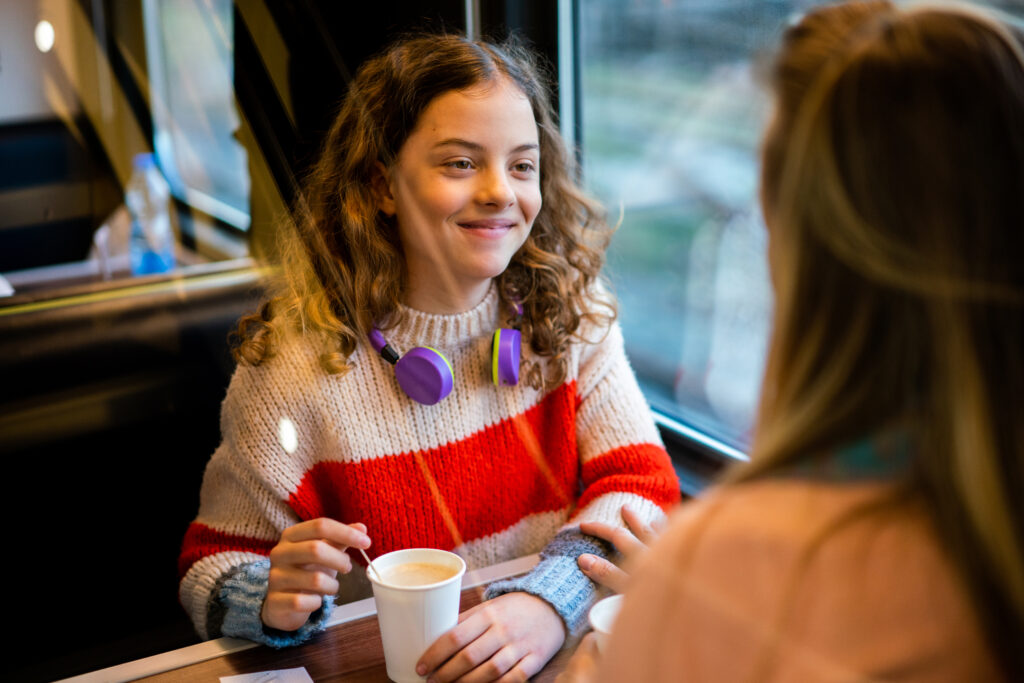Families and teachers are curious about how social isolation during the summer months impacts back-to-school experiences for teens, especially given that many are learning, at least in part, via remote or virtual instruction. We know that teens thrive on social connections and adolescence is the foundational time for life-long relationship building skills. Does this mix of in-person and virtual interaction offer enough meaningful social connection? Or is it too cumbersome leaving teens feeling further isolated?
In my work with teens, I hear mixed feelings about remote learning. Some are delighted to “see” their friends and teachers, while others are “over it” and frustrated with technical issues and screen-fatigue. A few are simply “dreading it.” How can we recognize their important concerns, help to alleviate worries, and provide solid tools for a successful and rewarding school experience?
Honing social skills for the new normal
Students who feel anxious or conflicted should be assured that these feelings are entirely normal in these uncertain times. Social skills may be rusty due to physical distancing and stay-at-home measures, making them feel a bit awkward, even if they were previously outgoing. Social skills over remote technologies are not the same as in-person; they require orientation, practice, troubleshooting, and acceptance of the limitations.
Some teens may struggle more than others to adapt to these new circumstances. Teens can experience anxiety, fear, embarrassment, or feel they are being scrutinized by others in social settings. They need extra support, especially when these feelings cause distress or lead to avoidance. If these behaviors persist for more than 6 months, this is considered social anxiety disorder.
Anxiety disorders are the most common mental health conditions in children and up 15% of teens may have social anxiety disorder, most of which are not recognized or treated. Social anxiety disorder is commonly seen in pre-teens and tweens, more often in girls and in children with other mental health disorders or family members with anxiety disorders.
While many teens with social anxiety disorder may have enjoyed a reprieve from their typical symptoms during the springtime school closures and summer break, now they may require extra support during the remote schooling experience. Here are three tips to guide families and teens facing social anxiety during this challenging time.
Recognize how social anxiety may look now and provide validating, non-judgmental support
The hallmark of social anxiety disorder is an intense fear of social or performance-type situations, and for teens, school and related activities have traditionally been where we see these struggles. Now, during this pandemic with distancing, cancelled social activities, and remote learning, the tell-tale signs of this disorder may look different. Look for teens sharing that they feel alone during virtual class and are unable to connect with friends and teachers. They may express intense fear of doing or saying something embarrassing online, of asking questions, or of being asked a question over the platform. They may appear shy, introverted, restless, or inattentive on camera. Some will be acutely reluctant or unable to independently “log on” to class or enable their cameras so they can be “seen.” Physical symptoms like racing heart, feeling faint, nausea, shaking, and sweating may be present and harder for teachers and parents to notice remotely than when in-person.
To start, offer warm validation and positive encouragement, asking the teen to open up and share their experiences. Useful phrases include:
“That does sound scary. Tell me more.”
“I hear that this was tough. Let’s practice some steps that might help you get through class tomorrow.”
“I had a hard time as well on Zoom recently. This helped me get through it.”
Work with your teen to create their own list of coping strategies and practice remote social skills
Coping skills, preparation, and practice are kryptonite for social anxiety in teens. We want to move from avoiding uncomfortable parts of the remote school day to facing the fears. We don’t want to create workarounds; instead, we aim to practice “working-through it” skills. For coping, teens can try breathing exercises and reinforce that no one can tell on camera that they are doing it. Mindfulness or meditation practices help too. Chair yoga or scheduled movement breaks can help ease stress as well.
Here are some strategies to practice and prepare for situations that elicit fear:
- Make a list of coping tools that can be used in the moment; these make great sticky notes or learn-from-home decor.
- Consider role playing (virtually or in-person).
- Save introductory phrases/questions that can be copied and pasted to engage peers.
- Draft messages to teachers together to be used when needed.
- Have tweens volunteer to go first or answer questions; this may relieve the discomfort of waiting to be asked.
- Plan a virtual study-date with a smaller group of peers.
- Do a practice a run-through of starting the school day with logging on with the camera on.
- Practice tests or other performance-anxiety laden situations remotely ahead of time.
Seek help from schools, pediatricians, and mental health specialists
A silver lining of the pandemic is that teachers and medical and mental health teams who care for teens are hyper-aware of recognizing and supporting youth through grief, depression, loneliness, and anxiety that may be exacerbated during this time. It will help teachers to know what your teen is experiencing, what you are seeing or what your concerns are, so they can help foster a positive learning environment.
Pediatricians and mental health providers can help screen for social anxiety disorder and can work with the whole family to connect to therapy, which will guide you further through using coping skills to face fears that are overwhelming during the remote school day. For severe social anxiety disorder, where therapy is not working and school is significantly impacted or missed, your health teams may suggest medication treatment as well. The best approach is to work as a team with open communication, to normalize feelings and create approaches that a teen can easily call on during uncomfortable virtual social experiences, which will help them thrive and flourish this academic year.
